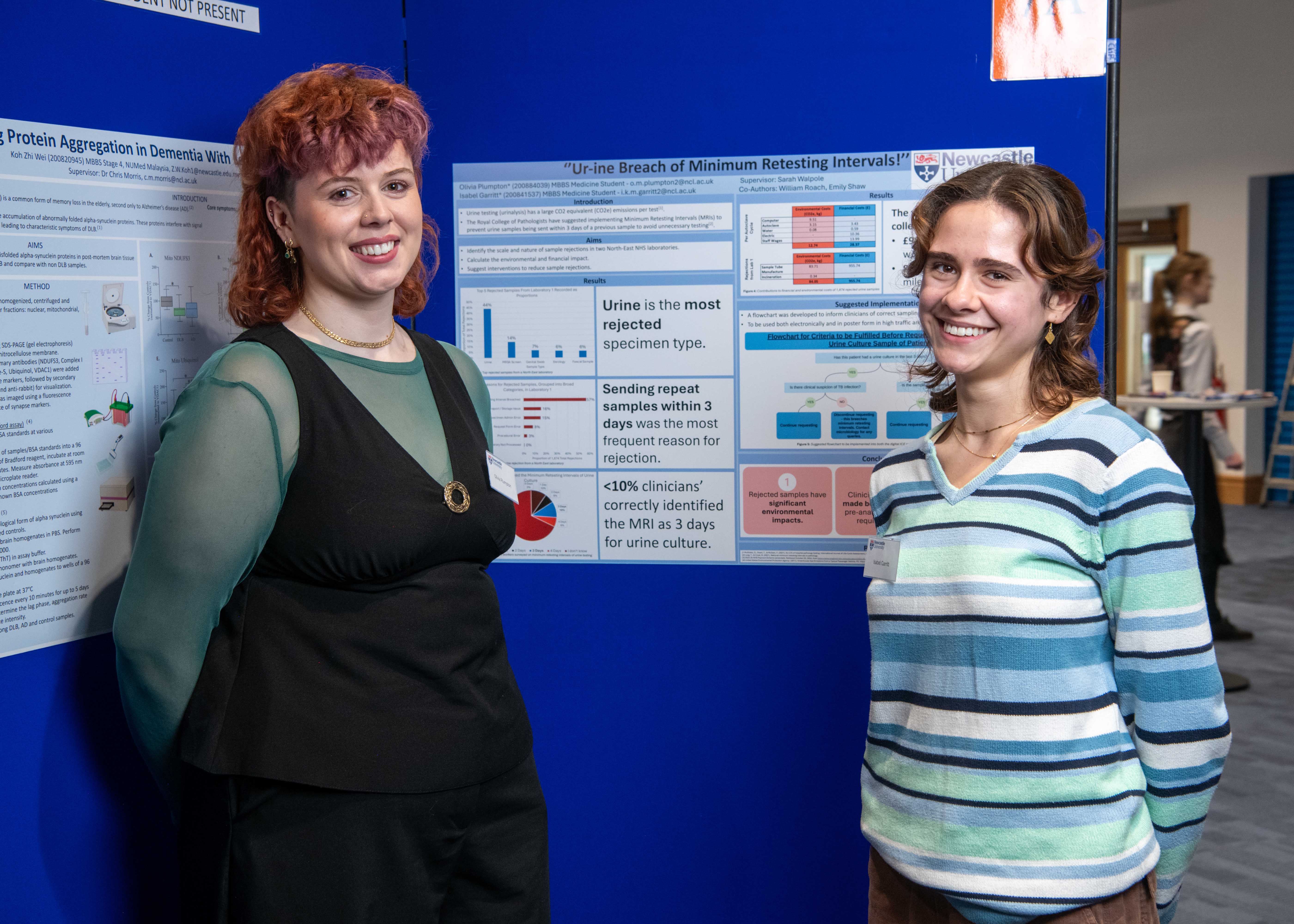Participants
 Olivia Plumpton and Isabel Garritt
Olivia Plumpton and Isabel Garritt
- ‘Ur-ine breach of minimum retesting intervals!’ : An exploration of the environmental and financial costs associated with sample rejections from NHS microbiology laboratories, reasons why sample rejection occurs, and effective intervention
- MBBS
Climate change is one of the most significant modern issues facing our planet so improvements must be made to make human activities more sustainable. The NHS were one of the first national healthcare systems to legislate a net zero plan, aiming for net zero CO2 and other greenhouse gas emissions by 2045. We wanted to develop a project that would help support this plan.
This quality improvement project explores the causes and impact of inappropriate requests to microbiology laboratories that result in negative environmental impact. We collected data from 2 NHS Trusts on how many samples were being rejected before analysis, the type of sample and the reasonings why. The most common rejection sample was urine, so we calculated the financial costs and carbon footprint
of the pre-analytical rejection of urine samples to visualize the extent of this issue and the scope for improvement.
To inform strategies to reduce the number of samples sent inappropriately, we reviewed previous literature and formulated a survey for healthcare professionals to complete. Results indicated a need for guidance on how and when to request and collect urine for culture. We developed a flowchart outlining the criteria required for urine sampling and the correct process of requesting laboratory analysis, to inform clinicians and help prevent wastage. We hope this project will provide further momentum for future projects to focus on reducing waste and therefore the carbon footprint of the NHS.
Funded by: Newcastle University Research Scholarship
Project Supervisor: Dr Sarah C Walpole
